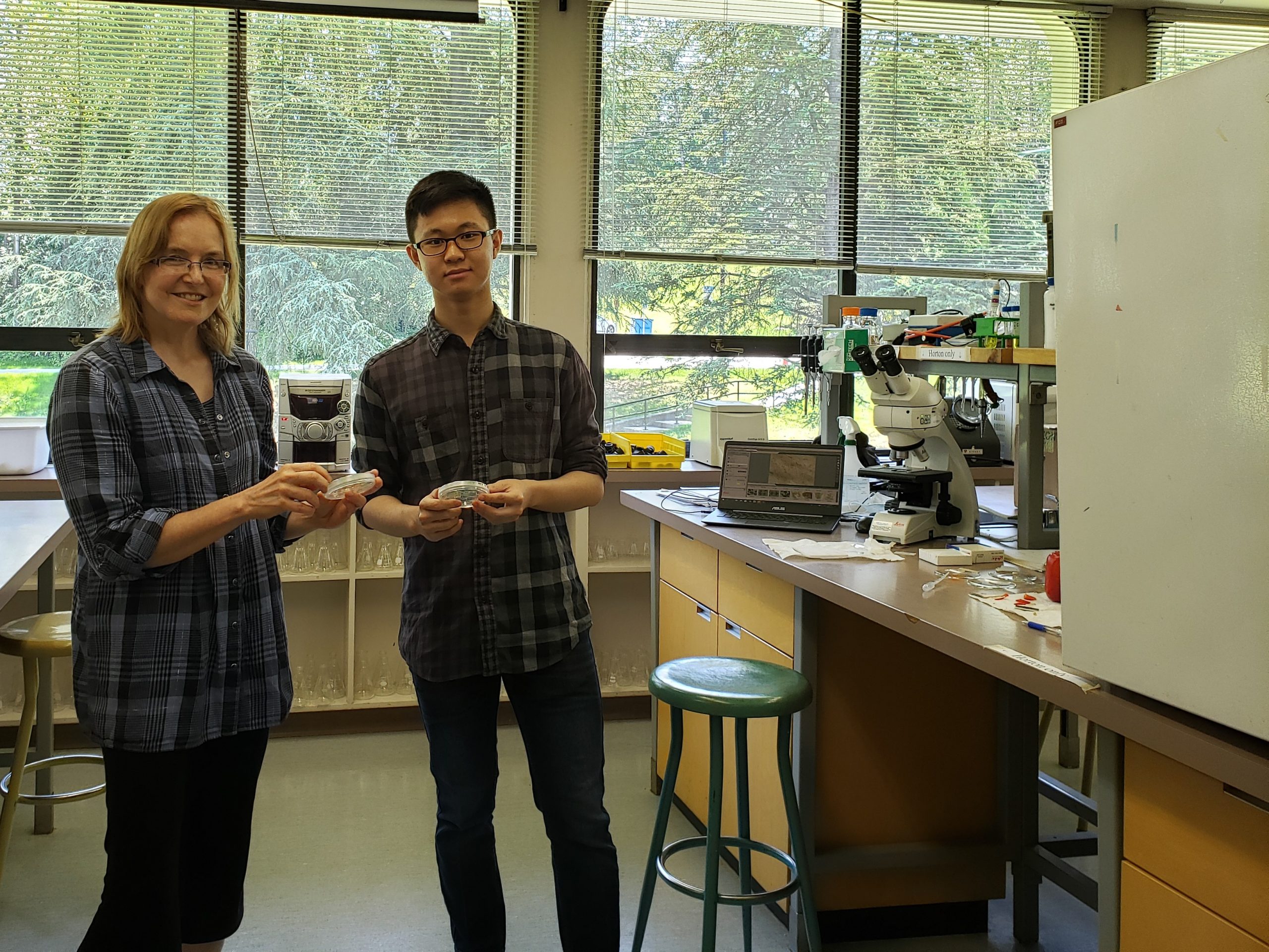There is a global effort focused on mitigating the impacts of climate change on agricultural crops, particularly the reduction in yield associated with hotter, drier climates. Researchers and students at BCIT are working on understanding how plants like corn and Setaria with C4-type photosynthesis are more drought tolerant than C3-type plants like rice and wheat.
Dr. Carol Wenzel, researcher and faculty member in BCIT Biotechnology, in collaboration with SFU Biology faculty Dr. Jim Mattsson focuses on how the plant hormone auxin and other genetic factors influence anatomical differences in C3 and C4-type plants. Both researchers are performing genome editing in Setaria with student researchers, including Horton Lai from the Biotechnology co-op program at BCIT/UBC.
Horton Lai won first prize in the Seeding Discovery Competition by Plantae and Conviron. BCIT was awarded a Conviron GEN1000 plant growth chamber and students are now using this chamber to perform experiments for their research.
Working with Setaria, a drought-tolerant plant species, the researchers hope to identify genes that help confer drought resistance. These genes could potentially be modified in C3 plants such as rice and wheat to help create agricultural crop plants that will better tolerate the hotter, drier conditions resulting from climate change.

“We are very grateful to Conviron and Plantae for their generous gift of the growth chamber. The precise growth conditions will enable us to accurately compare different plant phenotypes and the impact of drought on plant growth.” says Dr. Carol Wenzel “This chamber will be used for research with both co-op student projects and in the Biotechnology plant courses. We are also grateful to BCIT IRF funding that allows us to pursue this exciting research.”
The next steps involve identifying positive Setaria transformants and then screening these lines for leaf phenotypes that display altered C4 anatomical traits. We will then do functional genomic studies to confirm which genes control these traits and how they are correlated with water use efficiency. The ultimate goal is to improve drought tolerance in C3 plants like wheat and rice.
BCIT School of Health Sciences Biotechnology
The BCIT Honours in Biotechnology program gives students the best of two educational leaders: the University of British Columbia’s (UBC’s) theoretical and research expertise and BCIT’s hands-on laboratory training and high calibre, foundational courses.
For more than 15 years, this joint program has prepared students with current scientific and technical expertise and the business and communication skills to start their biotechnology careers as soon as they graduate.
